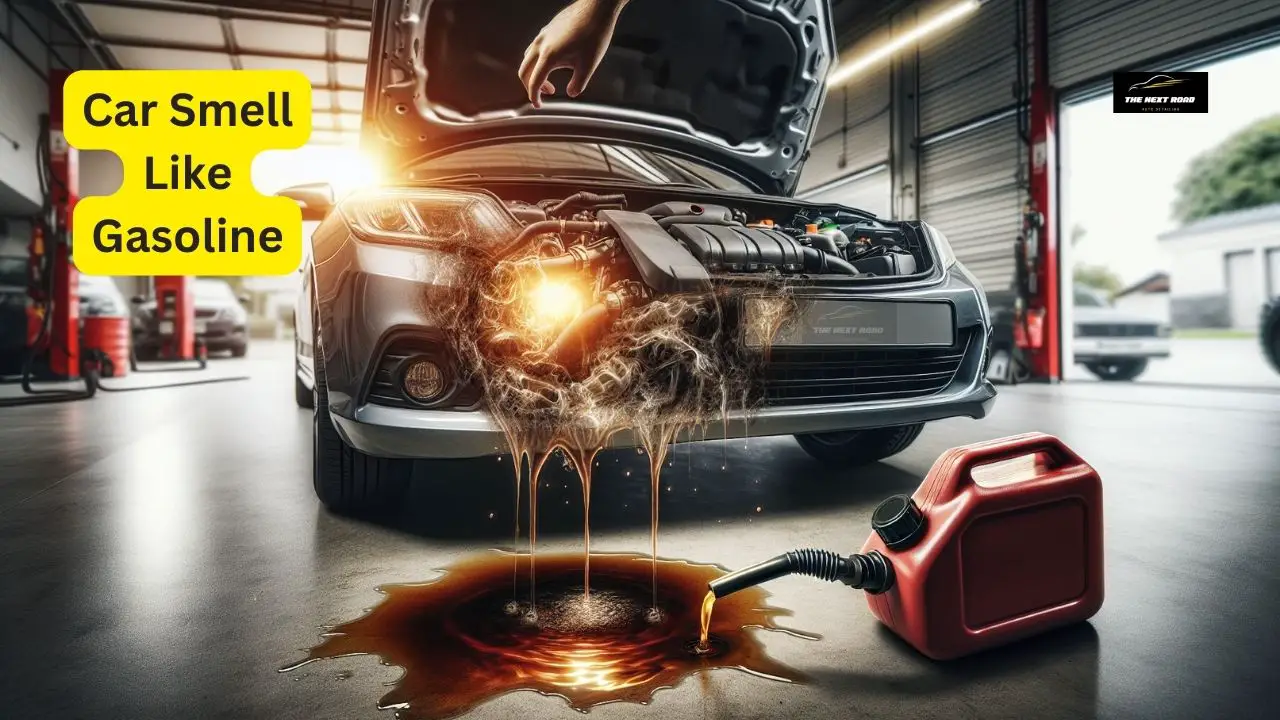Why Does It Smell Like Gasoline In My Car

That unmistakable whiff of gasoline inside your car is never a good sign. It's more than just unpleasant; it can indicate a potentially dangerous problem. This article will guide car owners and mechanics through the common causes of gasoline smells in vehicles, offering practical troubleshooting tips and maintenance advice to keep your car running safely and efficiently.
Symptoms and Potential Causes
Before diving into specifics, it's crucial to understand the common symptoms and their possible connections. Where and when do you notice the smell? This information can significantly narrow down the possibilities.
- Strong smell after filling up: This often points to a loose gas cap, a spilled fuel during the fill-up process, or a faulty fuel filler neck.
- Smell while driving or idling: Potential culprits include a leaking fuel injector, a cracked fuel line, a failing fuel pressure regulator, or a damaged charcoal canister.
- Smell only when the engine is cold: This could be due to a rich fuel mixture during the cold start phase, potentially caused by a malfunctioning sensor or a vacuum leak.
- Smell accompanied by poor fuel economy: A fuel leak is the most likely cause, wasting gasoline and affecting your mileage.
Troubleshooting and Solutions
Let's explore each potential cause in more detail, providing troubleshooting steps and potential solutions:
1. Loose Gas Cap
Symptom: Gasoline smell, especially after filling up. Check engine light may also illuminate.
Cause: A loose or damaged gas cap prevents the fuel system from properly sealing, allowing fumes to escape.
Solution: Tighten the gas cap until it clicks. If the smell persists or the cap is visibly damaged, replace it with a new one. This is a simple and inexpensive fix.
Example: On a Toyota Camry, a loose gas cap is a common cause of a gasoline smell and a "check engine" light. The error code often relates to evaporative emissions.
2. Spilled Fuel
Symptom: Obvious gasoline smell after filling up, usually strongest around the fuel filler area.
Cause: Spillage during refueling.
Solution: Wipe up any spilled fuel immediately. The smell should dissipate within a few hours. Ensure the fuel nozzle is properly inserted during future fill-ups.
3. Fuel Line Leaks
Symptom: Gasoline smell, particularly when the engine is running. May also notice fuel dripping or puddling under the car.
Cause: Cracked, corroded, or damaged fuel lines leaking fuel.
Solution: Inspect the fuel lines for any signs of damage. This may require lifting the car. If you find a leak, replace the damaged section of fuel line. This is a job best left to a qualified mechanic due to the flammable nature of gasoline.
Example: Older Ford F-150s are prone to fuel line corrosion, especially in areas with road salt. Regular inspection can prevent leaks.
4. Fuel Injector Leaks
Symptom: Gasoline smell, rough idling, poor fuel economy, and potentially difficulty starting.
Cause: Leaking fuel injectors spraying excess fuel into the engine.
Solution: Inspect the fuel injectors for any signs of leakage. A mechanic can use specialized tools to test the injectors. Replace any faulty injectors. Consider replacing all injectors at the same time for consistent performance.
Example: A leaking fuel injector in a Honda Civic can cause a noticeable gasoline smell and reduced fuel efficiency. Listen for a hissing sound near the injectors while the engine is running.
5. Fuel Pressure Regulator Failure
Symptom: Gasoline smell, black smoke from the exhaust, poor fuel economy, and engine hesitation.
Cause: A failing fuel pressure regulator allowing excessive fuel pressure, leading to a rich fuel mixture.
Solution: Test the fuel pressure regulator using a fuel pressure gauge. Replace the regulator if it's not functioning properly.
6. Charcoal Canister Issues
Symptom: Gasoline smell, especially after filling up. Check engine light may also illuminate.
Cause: A damaged or saturated charcoal canister, which is responsible for capturing and storing fuel vapors.
Solution: Inspect the charcoal canister and its associated hoses for cracks or damage. A saturated canister may need to be replaced. Sometimes, a faulty purge valve can cause the canister to become saturated.
Example: A Nissan Altima with a faulty charcoal canister can exhibit a strong gasoline smell and trigger an evaporative emissions error code.
Maintenance and Prevention
Preventing gasoline smells starts with regular vehicle maintenance:
- Regular Inspections: Have a mechanic inspect your fuel system during routine maintenance.
- Prompt Repairs: Address any leaks or fuel-related issues immediately.
- Use Quality Fuel: Using high-quality fuel can help prevent fuel system deposits and corrosion.
- Proper Filling Techniques: Avoid overfilling the gas tank. Stop filling when the nozzle clicks off automatically.
- Replace Fuel Filter: Change your fuel filter according to the manufacturer's recommended schedule. A clogged fuel filter can strain the fuel pump and potentially lead to leaks.
Important Safety Note: Gasoline is highly flammable. If you suspect a fuel leak, avoid smoking or using open flames near the vehicle. Immediately consult a qualified mechanic for diagnosis and repair. If you notice a strong gas smell inside your cabin and begin to feel light headed, pull over to a safe location and exit the vehicle.
By understanding the common causes of gasoline smells and following these troubleshooting tips and maintenance recommendations, car owners and mechanics can effectively diagnose and resolve fuel system problems, ensuring a safe and enjoyable driving experience.
